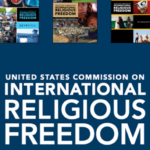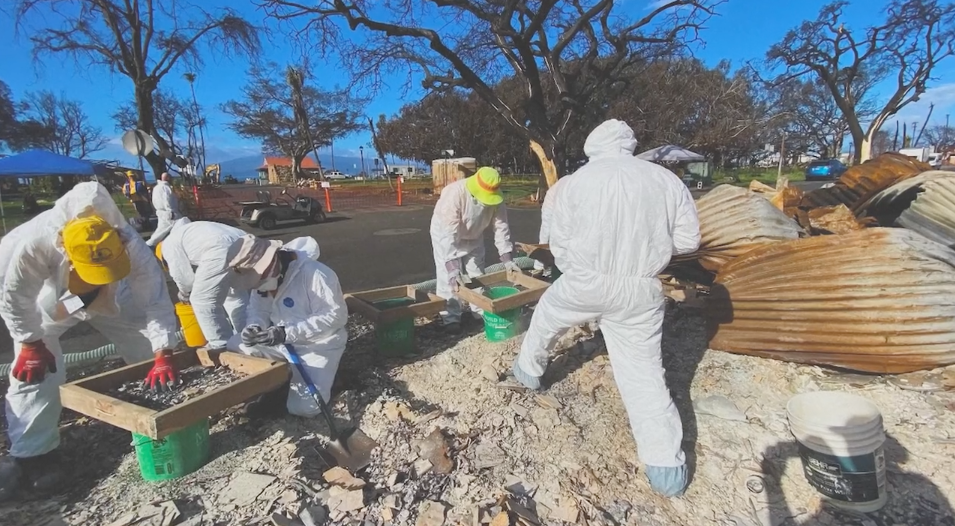D.J. Horton said one of his main “dad speeches” that he gives his kids is this — “Do not let life happen to you; you happen to life.”
For him, that idea carries over into the beatitude he preached on at the Southern Baptist Convention Pastors Conference June 12 — “Blessed are the peacemakers, for they shall be called the children of God” (Matt. 5:9).
“If there is one way this beatitude differentiates itself, it is that it is the one that stands alone as a call to action,” said Horton, pastor of Church at The Mill in Spartanburg, South Carolina.
To be merciful, righteous or meek is a state of being, and when you receive comfort or endure persecution, you are not the aggressor, he said. “But the peacemaker is a game changer. Jesus said that we as His followers should walk into situations of conflict and not just endure persecution, not just pray, not just hope, not just bless … but to go into situations of tension and make peace.”

In that scenario, you bring something into the situation that wasn’t previously there, Horton said — in other words, you don’t just let life happen to you.
But, he said, sometimes it can be difficult to know exactly how to go about making peace, so for help, he turned to James 3:13–18.
Horton said James’ treatment of wisdom and practical Christian wisdom has the “aroma of peace” coming off the pages. Verse 17 mentions that “the wisdom from above is first pure, then peaceable, gentle, open to reason, full of mercy and good fruits, impartial and sincere.”
“In this passage, James marries together wisdom and understanding, but he’s getting to peace,” Horton said.
It helps Christians differentiate between faking peace and making peace.
“There is a false peace that can exist among spiritual people,” Horton said. “Words only carry merit to the degree to which they are validated by what we do.”
James expresses in this passage that believers show their understanding by their good conduct, Horton said. “James says don’t attempt to be publicly and verbally what you are not personally and spiritually … when he begins to speak of this, the two things that are most offensive to him are bitter envy and jealousy.”
No matter what your position may be, your ability to walk into tension and be an agent of peace doesn’t start in that conversation, it “begins in the quality of the last quiet time you had with Jesus,” Horton said. “Because bringing your heart before the Lord allows you to be held accountable for the envy and selfish ambition that can take part in any of our lives. It’s an issue of motive.”
Faking peace comes from the flesh and leads to disorder, Horton said. “We in the situation stop taking our cues from heaven … and begin to operate like the world operates.”
The world attempts to broker peace all the time and fails, he said.
“The outcome of faking peace is worse than you realize. When we attempt to fake peace with spiritual words, with baptized motivations, not only do we create disorder, James says wickedness flows,” Horton said.
The world is supposed to backbite, manipulate, undermine and plot, he said. “But believers are not, and there’s an extra measure of evil when a believer who knows better does it anyway.”

That’s true when a believer who has tasted mercy and grace decides to type that tweet anyway, Horton said. “When a believer who has a wonderful vocabulary of sanctified language can lace together masterful arguments about their particular cause all the while the root is selfish ambition. James said that’s not peacemaking, that’s peace faking.”
Making peace is the wise course of action, he said.
“What happens when God’s people become so gripped by God’s Spirit that microphone 8 is not busy tomorrow? What about when people meet in hallways and say, ‘I was wrong, and I want you to forgive me’ … instead of commenting about you, let me buy you a cup of coffee and let’s talk,” Horton said.
What happens, he asked, when pastors go back to their most difficult church members and extend an olive branch?
Peace like this can only happen through the shed blood of Jesus and the work of the Holy Spirit in a person’s heart, Horton said.
“The Bible tells us the wisdom of peacemaking begins in me, in my heart, when I decide to deal with my sin and then only after that I walk into a situation and I want God’s very best for that person that the world may say is my opponent,” he said. “Friends, you don’t have an opponent in this room. You don’t have an adversary in this room. … I, for one, want to be part of a group of people who decide our passion for our Savior’s words as a Peacemaker are so strong on our life that we refuse to lose our focus on the mission.”
To view more photos from Horton’s event, click here.








